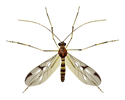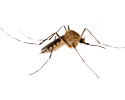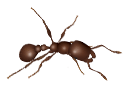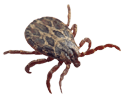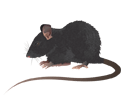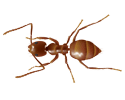What Attracts Termites to Your Home
 Understanding what attracts termites to your home is the number one step in preventing them. Once you have a termite problem, it becomes increasingly difficult to stop the infestation in its tracks. Your home might be offering the perfect environment, which is why it is important for the safety of your home to understand what conditions may cause termites to infest your home.
Understanding what attracts termites to your home is the number one step in preventing them. Once you have a termite problem, it becomes increasingly difficult to stop the infestation in its tracks. Your home might be offering the perfect environment, which is why it is important for the safety of your home to understand what conditions may cause termites to infest your home.
What kind of wood are termites attracted to?
Most home-invading termites prefer wood with high moisture content and the presence of decay. Subterranean termites are not picky and will eat many of the common types of wood found in homes, including pine and oak. Drywood termites don’t contact the soil and will eat hardwood floors and the wood found in your home’s structural framing. They also may inhabit floors and furniture.
Firewood/Mulch
Firewood and mulch surrounding your home also attracts termites and provides a point of entry to inside your home. If you do need to store firewood, keep woodpiles at least 20 feet away from the home. Mulch retains moisture and can also attract termites to your home. Keeping it above 18 inches from your foundation and regularly checking for termite activity.
Moisture
Moisture creates ideal conditions for termites, and they thrive in damp soil. Keep your yard dry by sealing water leaks, repairing leaky AC units, regularly clean gutters and divert rainwater that collects with down-spout extenders. A dehumidifier can be placed inside the home to help keep conditions dry.
What don’t termites like?
If you happen to be in the process of building a new home, deck or some other kind of addition, there are a few types of wood that are less likely to attract termites. Pressure treated wood, for instance, is embedded with preservatives that make it resistant to rot and fungi – termite attractants. Composite materials can also be used to makes products that termites can’t digest, such as a combination of plastics and wood fiber.
Wood that is naturally resistant to termites includes redwood, cypress and cedar. However, when it comes to building material, these are not as long-lasting as treated lumber. Heartwood, the dense, inner part of the tree trunk, is where most resistant compounds are concentrated.
Signs of a termite infestation include:
- Soft wood in the home that sounds hollow when tapped
- Mud tubes (known as subterranean termite shelter tubes) on the exterior of the home
- Darkening or blistering of wood structures
- Cracked or bubbling paint
- Small piles of feces that resemble sawdust near a termite nest
- Damage around the home, such as your fence, porch, patio or deck
- Discarded wings near doors or on windowsills, indicating swarmers have entered the home or swarmers themselves, which are often mistaken for flying ants
- If a termite infestation is suspected, homeowners should contact a pest control professional immediately as it can be extremely difficult to eliminate each one of them on your own.
Termite protection for your home:
The key to protecting your home from termites is eliminating the number of things that may attract termites. Reduce moisture in and around the home by diverting water away from your home’s foundation with properly functioning downspouts, gutters and splash blocks. To reduce humidity, install ventilation in crawl spaces and avoid planting shrubbery and dense foliage close to the home.
Eliminate all wood-to-soil contact. This includes attached fence posts, stair casings, trellises and door facings. It is best to maintain an 18-inch gap between soil and any wood portions of the home.
Routine inspections. Perform routine foundation inspections to check for signs of termite damage. Subterranean termites are easier to identify because of their mud tubes. Dry wood termites are much more difficult to identify and generally require a professional inspection.
Get in touch with Holder’s
Holder’s Pest Solutions offers free termite inspections. So if you’re worried you may have a termite problem, give us a call today, don’t wait! We can identify termite infestations, make the necessary recommendations and alert you if we see anything that might attract termites in the future. Call us today!
What Attracts Termites to Your Home Serving
Houston
Beaumont | Conroe | Spring | Pasadena | The Woodlands | Richmond | Galveston
Baytown | Bryan | Cleveland | College Station | Cypress | Pearland | Sugar Land
Home » What Attracts Termites to Your Home
 Understanding what attracts termites to your home is the number one step in preventing them. Once you have a termite problem, it becomes increasingly difficult to stop the infestation in its tracks. Your home might be offering the perfect environment, which is why it is important for the safety of your home to understand what conditions may cause termites to infest your home.
Understanding what attracts termites to your home is the number one step in preventing them. Once you have a termite problem, it becomes increasingly difficult to stop the infestation in its tracks. Your home might be offering the perfect environment, which is why it is important for the safety of your home to understand what conditions may cause termites to infest your home.
